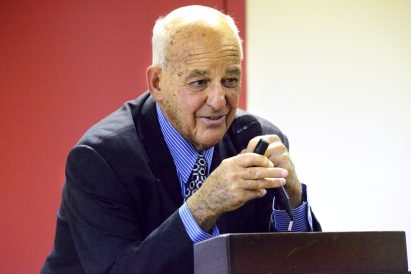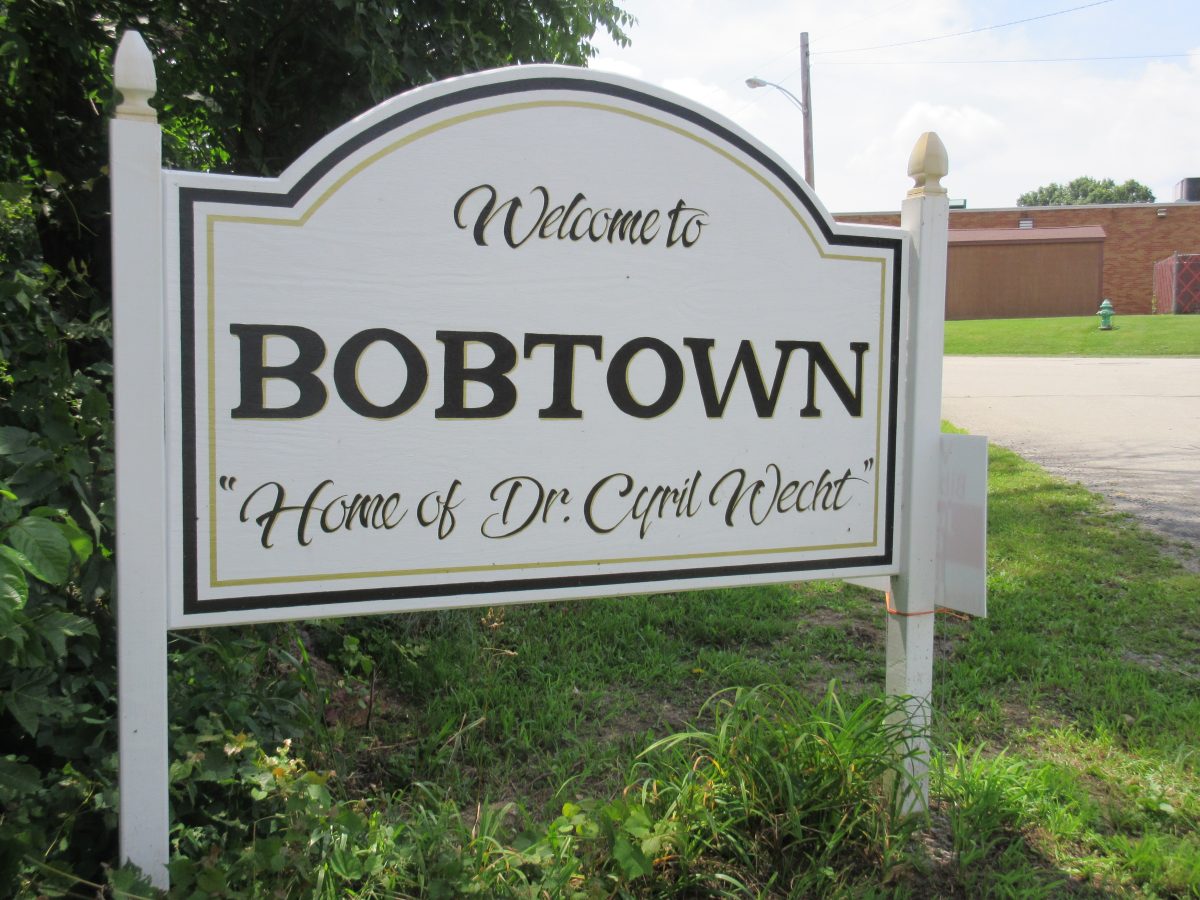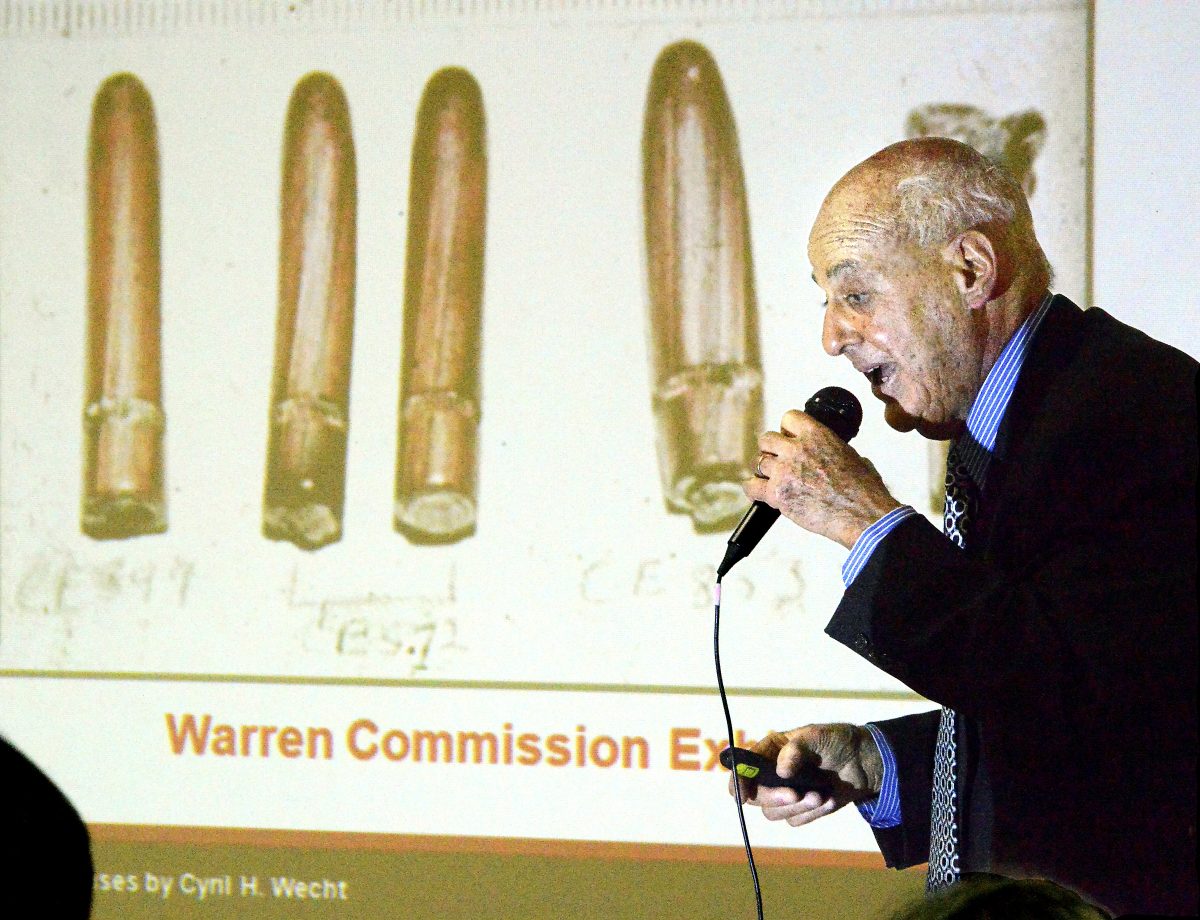A native son: Cyril Wecht’s first home – and his roots – are in Bobtown

Cyril Wecht’s first home – and his roots – are in Bobtown
Cyril Wecht is full of knowledge. He’s got a law degree, a medical degree, and a wealth of experience when it comes to forensic pathology. But there are some things that he does not know. For example, he was too young to have memories of the year or two he spent in Bobtown, Dunkard Township, where he was born.
Nathan and Fannie Wecht were Jewish immigrants to the United States from Lithuania and Ukraine, respectively. According to the 1930 U.S. Census, Nathan immigrated in 1916 and Fannie in 1921. Cyril Harrison Wecht was born March 20, 1931, in Bobtown. He isn’t sure when or why his parents settled in the area, but he does know that they had a small store.
“My father did a few different things, there was peddling and stuff like that,” the 86-year-old Wecht says. “This was their first venture, as I came to learn, and they opened up the store and I’m not sure when. I think things weren’t going well with the Depression. I don’t know all the circumstances. Then, in 1932 or sometime later, maybe the early part of ’33, they moved to McKees Rocks. That’s where I spent the next several years of my life.”
Take a look at what was going on in Bobtown around 1930, and it’s a safe bet that the Wechts came to capitalize on the Shannopin Coal Mine boom. In “History of Greene County Pennsylvania, Volume II” by G. Wayne Smith (published by the Cornerstone Genealogical Society in 1996), Smith notes that construction of the mine town began in 1924, and that by 1928, the area with 354 company houses had a population of 1,200. There was also a company store – though we can not confirm if the Wechts ran it – a jail, theater and an elementary school.

In the same book, Smith writes that the largest population increase in Greene County from 1920 to 1930 was in Dunkard Township. Bobtown went from 1,226 to 3,506 people in one decade – growth of 180 percent.
But then the stock market crashed in 1929, and the economy across the nation went downhill from there. Bobtown was no exception.
“I think back – so many questions that I don’t know why I hadn’t raised them, or if I did … my parents simply did not like to talk much about their experiences, either growing up or in the respective countries,” Wecht says. “Lithuania and now Russia (then Ukraine) were not pleasant for Jewish people. Not that there wasn’t any unpleasantness in Bobtown for them, but they were very difficult times.”
And so, for Wecht, why his parents ended up in Bobtown remains a mystery.
“I have no specific knowledge of why they chose Bobtown, I know that at some point my father made a connection with someone who had come from that part of Lithuania – they didn’t know each other from Lithuania, but they met over here – and that person had been here a little bit longer and doing some things in business,” Wecht says. “I’m sure that he probably advised my father to go on his own and open up a little store instead of just trying to work for somebody and be a peddler with a truck, and I guess then an opportunity presented itself in Bobtown.”
He continues, “I am so angry at myself for not having pursued this to learn more, but I don’t know. I can only say in my defense that maybe some parents shared experiences and reminisced, but mine did not ever do so. Even though they lived to good ages, my father was about 75 and my mother I think just about 80, and we were very close through all those years – these are just things that were not discussed.”
While Wecht’s memories or knowledge of his Bobtown roots may be non-existent, the town is proud to claim him. The sign welcoming people to Bobtown, for example, says “Home of Dr. Cyril Wecht.”
When he visited the area in 2016 for the 70th anniversary of the Shannopin Civic Club, he was presented with a handmade crock with a sketch of the Shannopin Mine on it – and it was created just for him.
Wecht went on to a career that, if called impressive, feels like an understatement. He’s consulted on the John F. Kennedy assassination, and when asked about it, he still gets fired up discussing the controversy and, in his opinion, cover-up. “I think the Warren Commission report is total nonsense, based upon the single-bullet theory,” he says, going on to explain that the camera that the Zapruder film was shot on was tested and shown to operate at 18.3 frames per second.
“So there you are in a room, moving around in serpentine fashion from picture to picture, traveling 1/18 of a second. There’s not a thought you can entertain, a movement you can make, a word you can utter 18 times in one second – but you can study the assassination of Kennedy and the wounding of (Gov. John) Connally in 1/18-second intervals – that Zapruder film is priceless.”
We will spare you the rest of the details, most likely details that you already know.

Mark Marietta
Forensic pathologist Dr. Cyril Wecht discusses his opinions of the ballistic evidence from the Warren Commission report on the Kennedy assassination for an audience at the Citizens Library in Washington on Nov. 1. Wecht cited this evidence and several other issues in disputing the single-bullet theory of the assassination.
But even today, 54 years after that fateful November day, Wecht is still digging for the truth. Our interview took place before the Oct. 26 release of more pages of the Warren Commission’s report, and he was eagerly looking forward to that – he was also, understandably, not very happy when President Trump decided to delay the release of thousands of pages of the document, citing national security concerns (those additional pages are slated to be reviewed over a period of 180 days).
And in November, Wecht traveled to Houston, Texas, for a two-day mock trial at the South Texas College of Law-Houston, hosted by an organization called Citizens Against Political Assassinations, of which he is chairman.
When asked if he thinks we will ever know what definitively happened, that’s when he gets really fired up. “That’s, of course, the bottom-line question, isn’t it? I don’t know,” he says, and you can hear the disappointment and anger in his voice.
Of course, it was his vocal opposition to the Warren Commission’s report that thrust him onto a national stage, and then opened doors of opportunity to consult in a number of other high-profile cases – Robert F. Kennedy’s assassination, the death of Elvis Pressley, Mary Joe Kopechne, the Waco Branch Davidian fire, and JonBenet Ramsey, to name a few.
And no, the former Allegheny County coroner shows no signs of slowing down. He and his wife, Sigrid Wecht, who runs his office, have been married for 56 years. They have four children and 11 grandchildren. He just renewed a lease on his Westmoreland County autopsy space, where he works on private autopsies (556 last year, by his count, and he says he’s on track to do at least that many, possibly more, before we turn the calendar to 2018). He’s also in the process of working on “a big, fat book,” which will be about all of his involvement in the JFK case.

